Why Do Dogs Eat Grass? A Vet Weighs In
Eating grass is a common behavior in dogs and isn't as concerning as other things dogs try to eat. However, you may wish to stop your dog from eat
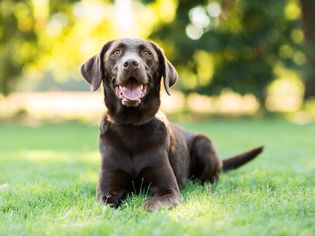
The reasons why some dogs eat feces are not entirely known, but we understand how frustrating it can be for dog owners. If you find that your pup is often eating poop, don't fret: Coprophagia, or the act of eating feces, is relatively common in dogs. It's also treatable in several ways, such as keeping your yard free of dog droppings and understanding why your dog is doing this in the first place.
The reasons why some dogs eat feces are not entirely known, but there are a few theories. Dogs may eat stool for reasons like instinct, hunger, stress, or illness.
Mother dogs instinctively lick their pups clean, which includes ingesting the puppies' feces. This normal maternal behavior keeps the pups and their environment clean. Many puppies will begin to eat feces at a young age. Some pups grow out of this normal behavior while others continue this into adulthood.
Eating the feces of other species is also considered natural behavior. If you have a cat, you may notice that your dog cannot stay away from the litter box. Most dogs love the taste of cat poop. Perhaps this is because of the high-protein diets of cats.
A dog suffering from starvation or severe malnutrition might eat anything it can find. Some dogs, though well-nourished, are hungry all the time (this may be a sign of illness or simply the personality of the dog). Many dogs are completely obsessed with food and will ingest anything that tastes good to them.
Unfortunately, many dogs seem to like the taste of feces. Some people believe that dogs eat feces when they are lacking something in their diets. Most veterinarians say that this is actually not the cause of coprophagia.
A dog in fear or under a great deal of stress may eat his own stool. In some cases, this could be a kind of self-soothing mechanism. However, if a dog is punished for inappropriate defecation or other action related to feces, he may associate the punishment with the presence of feces. By eating the feces, he is removing the "evidence" to avoid punishment.
Certain diseases and illnesses can cause a dog to eat feces. A symptom of some diseases is increased appetite or ingestion of inappropriate items (called pica). An illness that changes the consistency or smell of the stool might encourage a dog to eat his own stool. The sudden onset of coprophagia calls for a veterinary exam.
Some dogs with dementia and other brain diseases have been known to start eating stool. This may be due to the confusion and disorientation caused by the disease.
It generally poses little danger for a dog to eat his own stool. However, bacteria and parasites from that stool can possibly be transmitted to the dog and therefore to humans and other animals through contact with the dog's mouth, saliva, or feces. If you are unable to keep your dog from eating feces, be sure to wash your hands thoroughly if you are in contact with your dog's mouth/saliva.
When a dog eats the feces of another animal (especially another dog or a cat), he is at risk for ingesting the eggs of intestinal parasites and potentially harmful bacteria that can easily lead to illness. A dog that is known to eat the feces of other animals should have frequent fecal analyses by a veterinarian.
Perhaps the worst effect of a dog eating poop is the foul breath you have to smell. Home dental care can help the breath, but it's best to prevent stool-eating altogether.
Once you have ruled out medical problems as a cause for the coprophagia, you are left with addressing the behavior. Because stool-eating is considered a self-rewarding behavior, it can be difficult to reverse.
First, make sure your yard is kept free of animal waste. Pick up your dog's stool as soon as possible after defecation. Be on high alert if your dog tends to eat his own feces during or immediately after defecation. Keep your dog on the leash when defecating. If his attention goes to the feces, immediately turn his attention to you (try teaching the "look" command). Reward him for paying attention to you with a tasty treat, then immediately pick up the feces and discard it. Another helpful command to use at this time is to say, "Leave it."
One more method to prevent coprophagia is to add something to your dog's diet that makes the stool taste bad to the dog. These products will not work for all dogs, but they will generally not harm your dog to try (as long as your dog is not allergic to any of the ingredients). Be sure to choose a product that is labeled for dogs, such as "For-Bid" or "Deter." Ask your veterinarian about the safest and most effective products to prevent poop-eating dogs.
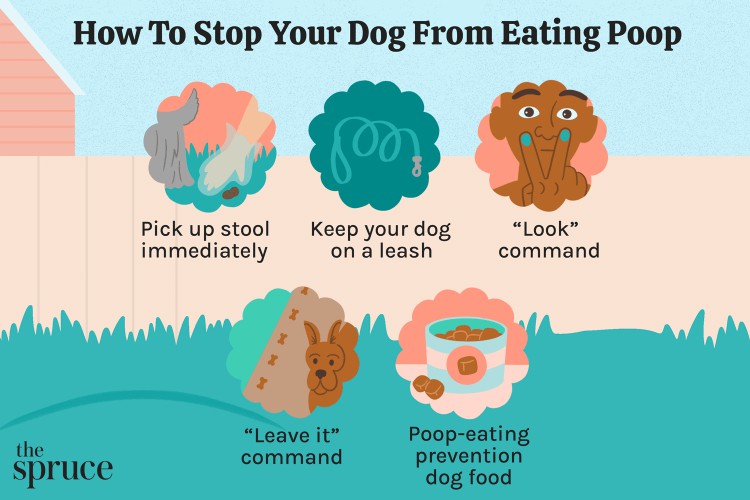
The Spruce / Ellen Lindner
No, this is a myth. Feeding dogs pineapple does not make them stop eating poop.
Well, frankly, because it's there. Dogs like to eat poop, they are especially interested in poop that comes from other animals, like rabbits, because it has an unfamiliar aroma.
Your dog eats cat poop because it has a strong and unfamiliar smell.
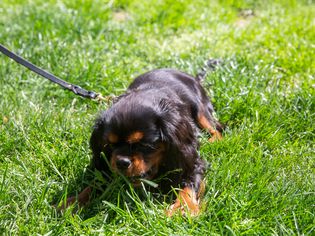
Eating grass is a common behavior in dogs and isn't as concerning as other things dogs try to eat. However, you may wish to stop your dog from eat
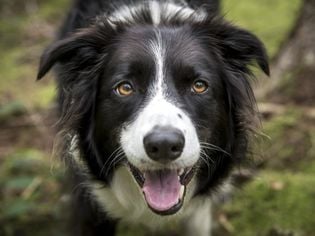
Nystagmus in dogs is a medical term that describes when your dog’s eyes move rapidly and uncontrollably. This can be scary to see as a dog caregiver,
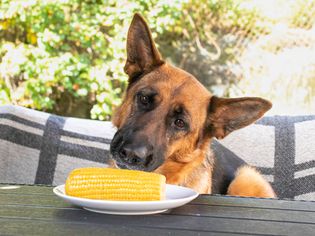
Does your dog beg for a taste of your corn on the cob? You may be tempted to give in to your drooling pooch and offer it as a tasty treat. Some people
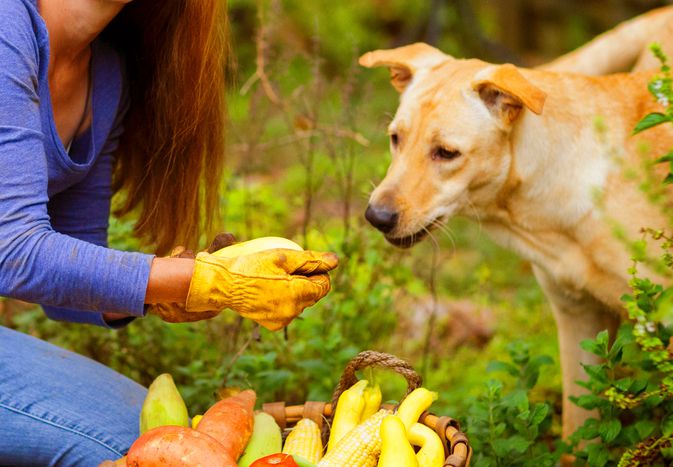
A lot of dogs really enjoy chomping on fruits and vegetables. So, the next time you’re preparing dinner, you may find yourself wondering—can dogs eat

No one wants to think about pet euthanasia. It's hard to know when the time is right to humanely end your pet's pain and suffering, and the death of a
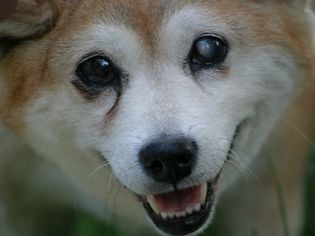
Blindness occurs in many species including dogs. Some dogs are born blind while others develop blindness. But regardless of how a dog may become blind
We are an information hub dedicated to delivering clear, trustworthy, and engaging content across a wide spectrum of topics — from innovation and trends to daily life, wellness, and global developments.
Our team is passionate about creating content that helps people stay curious, make informed decisions, and understand the world with greater clarity and context.
With a focus on quality, relevance, and accessibility, we aim to offer a meaningful experience for everyone seeking knowledge, ideas, and thoughtful perspectives.